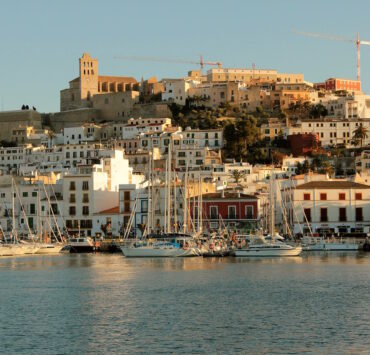The adults were engaged in their noisy chatter while I sat looking at the fallen trees and landslides our vehicle was passing by. Typical—or traditional could be more of an apt word—of Filipino families, the entire barangay sends off a family member when going abroad. In our case, it was just the entire household. That day though wasn’t one of our typical send-offs. A typhoon had lashed out in Batangas and our town was one among that took a heavy battering.
To reach our coastal town, you have to negotiate a series of bridges—some wooden—along a winding road that overlooked dangerously steep cliffs. One of the bridges had been too precarious for vehicles to cross. From the other end, I watched my parents lug their suitcases by foot across the bridge.
Another vehicle that would take them to Manila was waiting for them. We knew the drill, so there was no more choking back tears and heavy hearts—at least not on show. On that occasion, the only ones seeing the airport were the ones flying.
On the way back, I was calculating when I would see my parents again. At the time, they were Overseas Filipino Workers (OFW): my father as a physician/surgeon, and my mother a nurse employed by the Ministry of Health of the Kingdom of Saudi Arabia. They were in a generous position that they were able to take my sibling and me to live with them while not of school age.
When my sister and I returned to the Philippines, our parents would come home every ten months, during our two-month school break. It was the case for a decade or so. We didn’t feel any different from everyone else as not having a family member working overseas was, and still is, the exception rather than the norm.

Being exposed to familial distance at an early age schooled us about practicality, sacrifice and emotional detachment as sometimes necessary inconveniences to forge a more comfortable life ahead. It doesn’t work for all, but if you’re placed in the situation, you make it work.
A few years into settling in the UK, I came across a TV show called ‘Wanted Down Under’. The programme gives British families a week’s taster, which includes house and job-hunting in Australia or New Zealand, to see and feel if either country will suit their lifestyle and financial goals.
At the end of the show, the family members each hold a card that bears the UK’s flag and Australia’s or New Zealand’s on the other. They’re asked whether they’ll permanently stay down under or go back to the UK. The families or couples start flipping the card that shows the flags while their decision is suspended for the viewers by a commercial gap.
I was almost always correct in my assumption as to where the families would choose to be. The ones who cried me a river within a week at the debilitating thought of possibly seeing their families back in the UK only annually, and missing out on birthdays, anniversaries, Christmas, and Sunday roast, chose grey and rain over bright and dry.
While I empathized with their point of view, I also felt simultaneously contemptuous as I thought of hundreds of thousands of Filipinos whose only painful choice for better opportunities is not to be physically present with their families for years. They have no cards with flags to flip. They leave to scrub other people’s floors. And posteriors. Most heartbreaking of all, is they leave their children to take care of other people’s children.
In my 16 years in the UK, I have met colleagues who were raised by Filipino nannies. One of them is still my colleague’s cleaner. These women have their own children back home. Some have been fortunate enough to bring them over. The lockdowns and travel restrictions have magnified that distance and separation. But these workers simply carry on. What if Filipinos were given the same leverage as British families in that show?
We always speak of resilience as one of the best qualities of Filipinos; I say let’s put courage first. It is in every Filipino who leaves behind their loved ones to earn a living. Courage is not only about dying for one’s country; it is also about surviving the unknown in order to live.
This article was previously published in TFEM Spring Issue 2022.
What's Your Reaction?
MZ Akil worked in publishing and briefly in television in the Philippines before moving to the UK in 2006. She spends her train journey to and from London—where she has a remit within luxury fashion— randomly musing about life and occasionally talking about it in her blog. Her lifelong aspiration is to write stories rather than emails.




